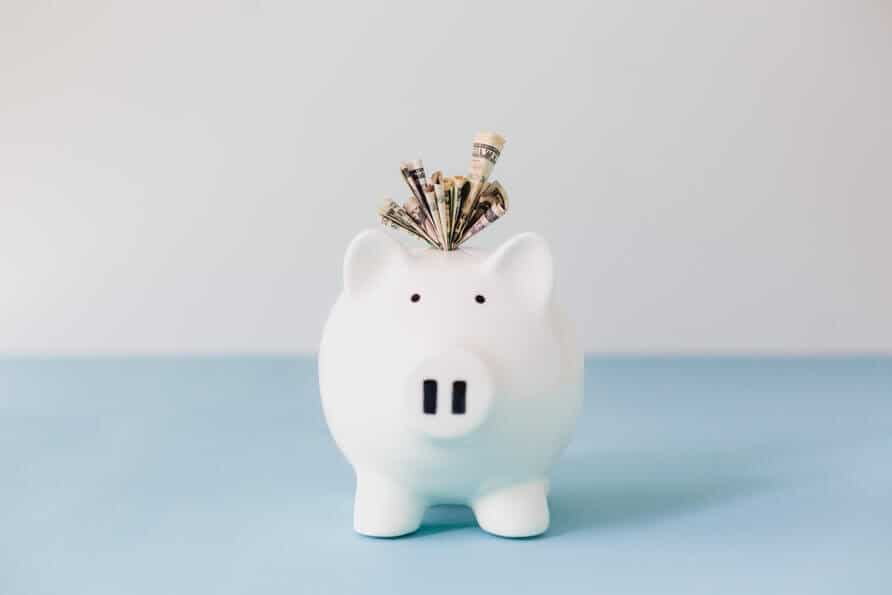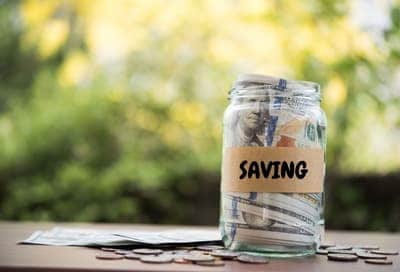Imagine this: You work tirelessly for 2 years to pay off all your debt and you’ve made great progress in turning around your financial situation.
Life is good and you feel great about yourself. As you should.
You become debt free and, instead of funding your emergency account, you start investing your money on a regular basis.
Life is still good.

But then life hits you in the face. You lose your job and you are no longer generating an income.
What do you do?
For most people unfortunately, they need to start withdrawing from their investments and begin to fall back into debt by spending on credit cards, lines of credit and other types of loans.
All of that work in the last 2 years, working late, eating Mr.Noodles, driving Ubers, living frugally. Gone.
Back into debt you go.
This can be very discouraging and, from a psychological perspective, it kills all the internal momentum you had in your quest of being financially free.
This is why you need an emergency fund!
The purpose of this article is to cover what exactly an emergency fund is and to discuss how much emergency fund you should have saved.
We will also go into detail about where you should keep your emergency fund savings so you can access it quickly…..but not too quickly.
What is an Emergency Fund?
An emergency fund is 3-6 months worth of expenses set aside in cash for unforeseen circumstances.
Examples of when you would need to withdraw from your emergency fund:
- Job Loss.
- Car Breaks Down.
- Unexpected Housing Expenses – Hot water boiler breaks.
- Family Emergencies. (last minute flight to attend a funeral)

Examples of when you don’t need to withdraw from your emergency fund:
- You want to buy a hot tub.
- You want to go on vacation.
- You want to redo the bathrooms in your home.
- You heard about a great investment opportunity.
How Much Emergency Fund Should You Have?
The answer to the commonly asked question “How much emergency fund should I have saved up?” is very situational.
As mentioned above, your emergency fund amount should cover 3-6 months of your household’s expenses.

So for example, a 25 year old business professional with $1500 in monthly expenses (rent, food, transportation) would need to have an emergency fund of anywhere from $4500-$9000 set aside.
Whereas, a couple in their 40s with 3 kids whose monthly expenses are around $6000 (rent, food, transportation, daycare, etc) would need an emergency fund amount of roughly $18,0000- $36,000.
It is important to use your judgement in determining how much emergency fund you and your family need.
Other things to consider when deciding how much emergency fund you should have could include:
- What type of industry do you work in?
- How long would it take to find a similar job in that industry?
- What is your job security like?
Where Should You Keep Your Emergency Fund Savings?
Okay, so you’ve completed the hard part and you’ve saved 3-6 worth of expenses.
Great Job!
Now you might be wondering, where should I keep my emergency fund savings?
This is the easy part!
High Interest Savings Account
While there are many different opinions out there on where you should keep your emergency fund savings, I personally believe keeping this money in a high interest savings account is your best option.
Why?
Because high interest savings accounts are liquid enough where you can take your money out when needed (an emergency!) but it’s not so easy to access that you accidentally mistake the pizza man at the door for an emergency.
Hidden in your Home
A lot of people like to keep their emergency fund in actual cash somewhere hidden in their house.
While doing this is better than not having an emergency fund at all, it is also very risky.
Unfortunate events such as a house fire or home theft could result in you losing your entire emergency fund.
Imagine how disappointing that would be.
I don’t recommend this option!
But if you feel like having physical cash on hand is something you want to have, consider holding 10%-15% of your emergency fund under your mattress with the rest stored away safely in a bank.
Low Risk Investments
Another option people like is to put their emergency fund into low risk investments such as Money Market accounts, GICs or Bonds.
While again, putting your emergency fund in a low risk investment is better than not having an emergency fund, I still don’t love it.
These investments can often take a few days if not more to convert into cash and this lack of liquidity could cause issues as emergencies wait for no one!
My Opinion
For the reasons stated above, I think a high interest savings account is your best bet when in comes to storing your emergency fund.
While it won’t be as liquid as the cash under your bed, you will probably make a few hundred dollars in interest each year, and you can still access it very quickly.
You might be thinking, at best I can make 2.5% with a high interest savings account and with inflation I would be losing money, whereas with bonds I can make upwards of 3.5%.
But here’s the thing,
The purpose of an emergency fund is not to make money, it is for insurance purposes, having insurance costs money!
So don’t be discouraged if you think you are losing money to inflation by putting your emergency fund into a savings account, remember, this emergency fund is for insurance purposes NOT for generating high returns.
Conclusion
Emergency funds are a must have.
You never know when something unexpected is going to happen and you need to prepare yourself.
Before you begin investing, make sure you have a fully funded emergency fund that will cover 3-6 months of expenses in case of emergency.
This way, if (when) something unexpected happens, you won’t have to dip into your investment or go into debt to keep a roof over your head and clothes on your back.
While there are many different options for you when deciding where you should keep your emergency fund, I would suggest a high interest savings account.
Remember, the human brain can be difficult to control sometimes, while it might be a nice feeling to go to sleep on top of $20,000 every night, its easy access could tempt the average person in using this cash for non-emergency related things.
If you account for inflation, emergency funds will actually cost you money as your purchasing power decreases each year with that money just sitting there generating very low returns.
But don’t think of an emergency fund as an investment, because it’s not.
An emergency fund is insurance for your lifestyle and like all insurance, it costs money.
While you might be wondering, what if I never have to use my emergency fund? I just have it sitting there collecting dust each year, what a waste!
Well this might happen, and if so… lucky you actually.
Not only have you not experienced any serious financial trouble, such as a large unexpected expense or job loss, but you probably slept like a baby every night knowing that if you did, you were going to be just fine financially, and that feeling is priceless.







4 Comments
Comments are closed.